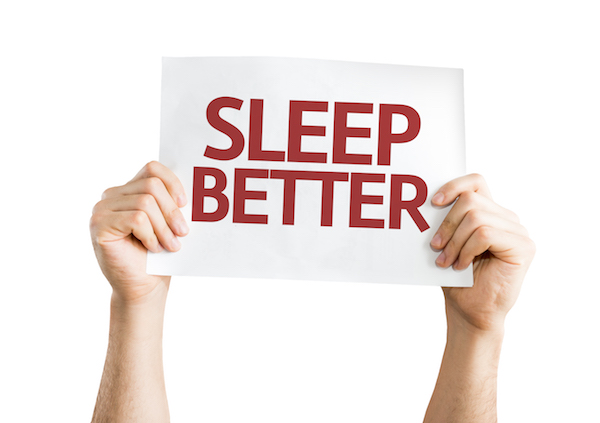Eight Tips To Get A Better Night’s Sleep

When you wake up in the morning do you count the hours until you can go back to bed? If that’s the case, then chances are you are not getting a good enough sleep at night. As we age, aches and pains and even worries of the day can cause us to toss and turn.
If you can’t remember the last time you had a great night’s sleep, we have some tips to help you get one! Remember, sleep is the time when our body rejuvenates and repairs itself and it’s important that we sleep fully enough to allow it to do just that.
Here are our eight best tips for a restful night’s sleep:
Write down your concerns and/or worries. Keep a notebook by your bed and when your mind starts spinning with all of the items you have to do or all of those you forgot to do, write them down. This simple task will let your mind rest easier because you know that since you’ve committed the items to paper, you won’t forget them in the light of day.
Invest in a real alarm clock. Whether you use a digital or an old fashioned wind up alarm clock you may get a better night’s sleep than you will with having your smart phone at your bedside. Even if you turn off the noises for announcements on the phone, in the back of your mind, you know you could easily reach over and check your messages. It leads to a restless night sleep.
Make sure you are relaxed. It’s always a good option to ensure you’ve wound down from your day before hopping into bed. If you’re stressed, lying in bed won’t help you fall asleep, it will just make you more anxious. Get up and move around. Take a walk. Have a glass of warm milk. Take a warm bath. De-stress before bedtime for a better night’s sleep.
Exercise early. is fantastic, but don’t do it before bedtime or you will be too energized to sleep.
Practice deep breathing. If you find yourself awake in the middle of the night practice some mindful breathing exercises. Take deep, slow breaths in and concentrate on relaxing all of the muscles in your body starting at your feet and ending at the top of your head. This mindful breathing and relaxation might lead to a better night’s sleep.
Refrain from drinking coffee, wine or other alcohol a few hours before bedtime. Caffeine will make it difficult to fall asleep; alcohol makes it difficult to stay asleep.
Sleep in a room that is cool and dark. If your bedroom is cool your body goes into sleep mode. Having a dark room without distractions such as a television or radio can make falling asleep easier.
Turn off electronics. Staying away from the computer, or even the television, for an hour prior to bedtime will make it easier to fall asleep. Your brain equates the flickering screens with daytime and will keep you awake.
By Incorporating one or more of these into your bedtime routine, may help you get a more restful nights’ sleep. Another step to take is to have a “bedtime ritual” where you start to focus your mind and your efforts on getting ready for bed; turn off the television, read a book, relax in a quiet room. Your energy and your overall healthy will thank you.
- How Seniors Can Feel Empowered in a Digital World with Accessible Technology
- February Is American Heart Month
- Thriving as a New Caregiver: Self-Care Secrets Revealed
- Bridging the Gap: Supporting Seniors Without Nearby Family
- Distance Caregiving Simplified: Modern Strategies for Compassionate Support
FREE BROCHURE Today!
